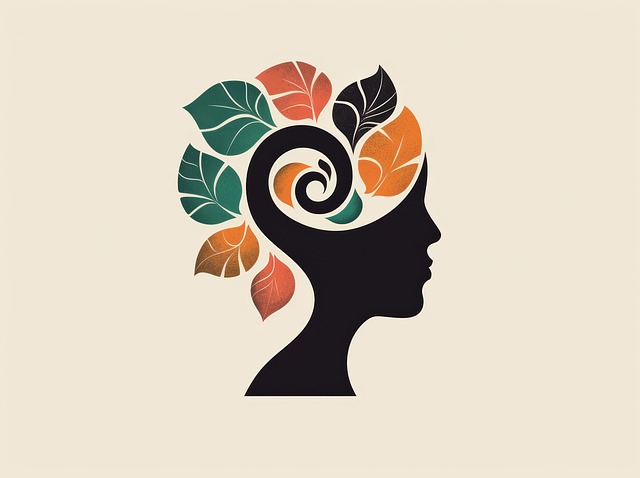The text explores the unique stressors affecting the elderly, such as physical health decline, cognitive impairment, social isolation, and financial worries, and their physical and emotional manifestations. It emphasizes the importance of empathy-based therapy, coping skills development (including CBT and mindfulness meditation), and cultural sensitivity in addressing elder stress. Crisis intervention techniques, tailored to elders' needs, help manage acute stress and trauma. Long-term stress management requires identifying root causes through holistic assessments and employing evidence-based practices like CBT, self-care for caregivers, and public awareness campaigns to enhance the quality of life for seniors. Key focus areas are therapy for elders' stress management and resilience building.
In today’s fast-paced world, elderly stress has become a growing concern. Understanding the causes and signs of distress in seniors is crucial for effective crisis intervention. This article provides valuable insights into recognizing and addressing elderly stress through various strategies. We explore crisis intervention techniques to offer immediate support and delve into therapeutic approaches tailored for long-term stress management. By implementing these practices, we aim to enhance the well-being and resilience of our aging population, focusing on the vital aspect of therapy for elders’ stress management.
- Understanding Elderly Stress: Causes and Signs
- Crisis Intervention Techniques for Effective Support
- Therapeutic Approaches for Long-Term Stress Management in Elders
Understanding Elderly Stress: Causes and Signs

Understanding Elderly Stress: Causes and Signs
The elderly population faces unique challenges that can contribute to elevated levels of stress. Factors such as physical health decline, cognitive impairment, social isolation, and financial worries can significantly impact an older adult’s mental well-being. Physical symptoms like fatigue, insomnia, changes in appetite, and increased susceptibility to illness may signal underlying stress. Additionally, emotional indicators such as irritability, anxiety, depression, or withdrawal from social activities are red flags worth noting. Recognizing these signs is crucial for initiating timely intervention.
Therapy for elders often involves empathy-building strategies to foster supportive relationships. Coping skills development through mindfulness meditation and other relaxation techniques can empower the elderly to manage stress effectively. By addressing these concerns promptly, caregivers and healthcare professionals play a vital role in enhancing quality of life for seniors.
Crisis Intervention Techniques for Effective Support

Crisis intervention techniques play a pivotal role in providing effective support to individuals facing acute stress or traumatic situations. For elders, who may be particularly vulnerable, tailored strategies are essential. One key approach is therapy for elders, focusing on cognitive behavioral therapy (CBT) methods to help them identify and challenge negative thoughts, promoting healthier coping mechanisms. This form of therapy enhances their resilience building capabilities, enabling them to navigate future challenges with greater ease.
Additionally, integrating cultural sensitivity in mental healthcare practice is vital for meaningful support. Crisis interveners must be adept at respecting and incorporating cultural contexts, ensuring that the assistance provided resonates with the individual’s beliefs and values. Techniques like mindfulness meditation can offer anxiety relief while considering the person’s cultural background, fostering a safe and supportive environment. Such individualized care contributes to positive outcomes, empowering elders to overcome crises and regain a sense of stability.
Therapeutic Approaches for Long-Term Stress Management in Elders

Elders often face unique challenges when it comes to managing long-term stress, requiring tailored therapeutic approaches. The first step involves identifying specific stressors and their underlying causes. This can involve a comprehensive review of the individual’s physical health, mental well-being, social connections, and environmental factors. Once identified, therapists can guide elders through evidence-based practices such as cognitive-behavioral therapy (CBT), mindfulness meditation, and relaxation techniques to help them develop coping strategies that address these stressors effectively.
In addition to these therapeutic methods, promoting self-care practices is vital for burnout prevention among healthcare providers who support elder care. Encouraging regular exercise, adequate sleep, and healthy eating habits can enhance overall resilience and reduce stress levels. Public awareness campaigns focused on recognizing and addressing elder stress can also play a significant role in creating a supportive societal environment. By combining these strategies, individuals, and the community at large can better navigate and manage the complexities of long-term stress, ensuring a higher quality of life for elders.
In addressing elderly stress management, a multifaceted approach is essential. By understanding the causes and signs of stress in the elderly, as outlined in this article, we can employ effective crisis intervention techniques. These strategies, combined with long-term therapeutic approaches, ensure holistic care for seniors, fostering not just crisis resolution but also enduring mental well-being. Through tailored therapy for elders, we can enhance their quality of life and promote resilience against stress.











